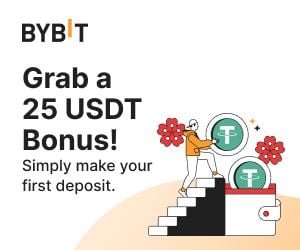The unicorn exchange platform is constantly innovating, paving the way for a new way of managing money on the Internet. Its growth can be explained in part by the race to decentralize finance, which is expected to dispense entirely with intermediaries in the years to come. The platform’s news is marked by the success of tokens bearing the image of dogs, which are riding the wave of Dogecoin.
Uniswap: the DeFi unicorn
What is DeFi?
In order to understand the functioning and the uses of Uniswap, it is necessary to quickly define the principle of decentralized finance (DeFi).
The Internet has enabled the progressive dematerialization of media and information. Thanks to the concept of blockchain and crypto-currencies, it should also have an impact on the world of finance.
Nowadays, when you want to manage your money, you have to go through an intermediary: a bank, for example. Similarly, the blockchains on which the first crypto-currencies (Bitcoin, Ethereum…) are generated still use intermediaries. For example, the exchange platforms on which the tokens circulate have become very large companies, which have a philosophy and operation equivalent to those of banks. Similarly, transactions on these platforms are still supervised by control authorities.
La finance décentralisée souhaite aller encore plus loin, en éliminant toute forme d’intermédiaire lors des transactions. Cette vision correspond aux valeurs de la cryptosphère, qui a été créée dans le but de se passer des institutions et de permettre à quiconque de gérer ses finances à partir d’une simple connexion Internet. Les nouveaux services proposés fonctionnent en pair-à-pair (via des « smart contracts »), donc sans intermédiaire. Les comptes et les transactions sont également entièrement privés (notamment grâce à des portemonnaies virtuels « non-custodials »), non censurables et ineffaçables.
Decentralized finance wants to go even further, by eliminating any form of intermediary during transactions. This vision corresponds to the values of the cryptosphere, which was created with the aim of doing away with institutions and allowing anyone to manage their finances from a simple Internet connection. The new services proposed work in peer-to-peer (via “smart contracts“), thus without intermediaries. The accounts and transactions are also entirely private (notably thanks to “non-custodials” virtual wallets), uncensorable and unerasable.
What does Uniswap offer?
Created in 2018 based on the Ethereum blockchain, Uniswap is both a protocol and an exchange platform, like Kraken or even eToro.
However, where the latter rely on a centralized protocol (CEX), Uniswap’s is decentralized (it is a DEX). The difference lies in two major features:.
- The way user funds are managed within a transaction.
- The way in which the buying and selling prices of each token are set on the platform.
It should be noted that Uniswap launched its update earlier this month. Uniswap v3 integrated solutions that speed up transactions, optimize fees and limit user losses.
The innovation of cash reserves
Uniswap allows users to keep their funds in their wallet when they want to make a transaction. This is a major difference to centralized exchange platforms, which store funds as well as the private and public keys of its users. This second category of platforms can therefore be hacked more easily, but also lose funds due to a failure of the system or its managers. Also, it is not necessary to communicate one’s private key (or even one’s identity) to Uniswap, and transactions are not monitored for the time being.
An automated “market maker”
Uniswap is not based on the concept of an order book for the management of supply and demand. On the centralized platforms, this tool makes it possible to know and to match each purchase request with a sale proposal.
In order to do this, the CEXs use “market makers“. These intermediaries are necessary to keep a balance between supply and demand: they constantly propose buying and selling prices. In this way, a user looking to buy or sell tokens will always find a suitable offer. A market that maintains these optimal conditions is called “liquid“.
With decentralized platforms, there is no longer an order book or a market maker as such. They are replaced by liquidity pools. The concept is simple: liquidity providers supply these pools with tokens in return for a reward. In this way, users who wish to carry out a transaction can tap into the pool. The “market makers” are replaced by a mathematical formula that automatically sets the exchange rates.

Uniswap v3 news: the pack is growing
We were recently telling you about the skyrocketing price of Dogecoin, the meme-based altcoin. After months of rise, the token experienced an unprecedented crash following Elon Musk’s comments during a skit broadcast during the talkshow “Saturday Night Live”. The star has always had a strong influence on the price of Dogecoin. In fact, he is suspected of owning 28% of the DOGE in circulation.
This has not discouraged the “doge-killers”: altcoin replicas keep multiplying, and are exchanged mainly on Uniswap. Their project is just as ironic and unserious as their model’s.
Among the pack, the Siba Inu (SHIB) stands out strongly. Coming in at the top of the Uniswap v3 leaderboard when it launched on May 5, it currently holds the 8th spot of the most traded tokens on the platform. The SHIB/WETH pair still tops the Uniswap v2 ranking (which is still online), reaching a surreal trading volume (around $539 million).
Other “doge-killers” follow the Shiba Inu closely and dominate the top 10 of the Uniswap v2 rankings, such as Akita Inu (AKITA), Kishu Inu (KISHU), Doge Killer (LEASH) and Dogelon Mars (ELON).
Conclusion
A pioneer in decentralized finance, the Uniswap platform recently surpassed 10 billion in weekly trading volume. It is now able to compete with centralized platforms like Kraken or eToro, which is enough to prove the current craze for decentralized finance applications. Currently, the most traded tokens on the platform are however far from bringing credibility to the dematerialization of finance. Shiba, Kishu and other Akita dominate its ranking, with projects as far-fetched as their model, the Dogecoin. And just as with the latter, it is not advisable to invest in these “dog-tokens”, whose price depends almost entirely on the media and social networks.

